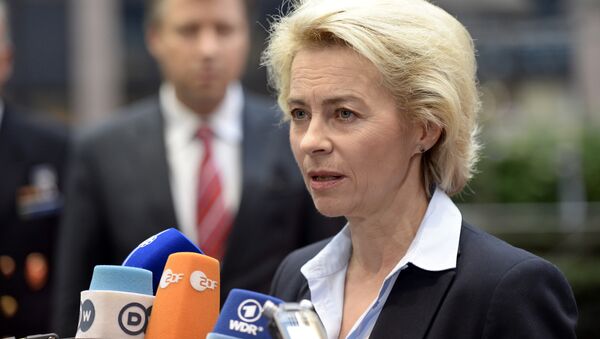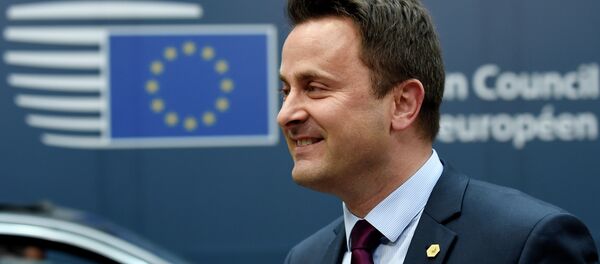According to the politician, the West has to deal with "two faces of Russia": on the one hand, she views Russia as a country, which "makes aggressive maneuvers," on the other, she considers it a partner in the resolution of world crises.
"But we also see that Russia cooperates with us, for example, when we negotiate the issue of Iran or when we act together in the Security Council to prevent arms trafficking in Libya. Therefore it would be correct to consistently and calmly adhere to a double strategy of NATO towards Russia — to the position of strength and dialogue," von der Leyen said in an interview with German media.
At the same time, the hard-power approach toward Russia has been severely criticized by a number of other German politicians. For instance, German Foreign Minister Frank Walter-Steinmeier slammed NATO's "saber-rattling" near Russian borders, saying that it could lead to the destabilization of the security situation in Europe.
Since 2014, the alliance has been building up its military presence in Europe, especially in Eastern European countries neighboring Russia, using Moscow's alleged interference in the Ukrainian conflict as a pretext. In Moscow, NATO's moves are being perceived as an aggression and an attempt to disturb the balance of forces in Europe.
Nevertheless, the dual approach of "force and dialogue" is being actively promoted by representatives of the current US administration, in particular, the head of the Pentagon, Ashton Carter. Carter explained that it was necessary to restrain "Russian aggression," but at the same time cooperate in the areas of security, where the countries have mutual interests.




